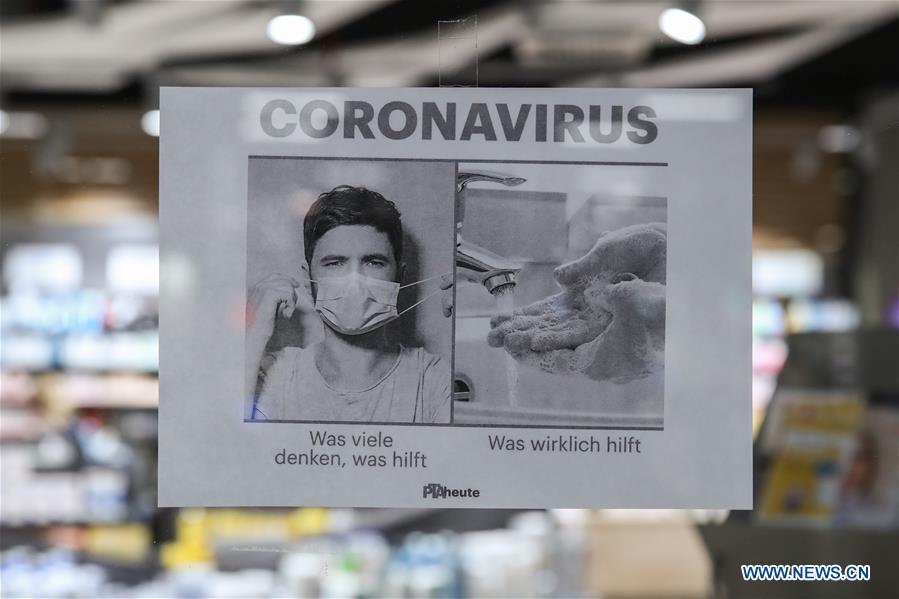
A poster calling on more hand washing instead of purchasing masks is seen at a pharmacy in Berlin, capital of Germany, March 3, 2020. Germany's confirmed cases of COVID-19 have increased to 188 on Tuesday from 150 a day earlier, according to Robert Koch Institute (RKI), a federal government agency and research institute responsible for disease control and prevention. (Xinhua/Shan Yuqi)
BERLIN, March 3 (Xinhua) -- Germany's confirmed cases of COVID-19 have increased to 188 on Tuesday from 150 a day earlier, according to Robert Koch Institute (RKI), a federal government agency and research institute responsible for disease control and prevention.
Most new infections were recorded in Germany's most populous state North-Rhine Westphalia, said Lars Schaade, vice president of the RKI during a press conference on Tuesday.
"We are dealing with a virus that has already spread to most parts of the world and is likely not to disappear," said Schaade.
For Germany that would mean that "everything has to be done to slow down and to reduce the intensity of an infection wave that could build up in the next weeks or months," added Schaade.
Hospitals and doctors would need to "separate the flow of infected patients and non-infected patients." This would require organizational preparations in order to maintain this separation also in the long-term, according to the RKI.
Aside from washing hands and avoiding uncovered coughs and sneezes, the RKI advised German citizens in areas where many new infections were reported to reduce social contacts and postpone or cancel planned trips.
Affected companies should offer its employees to work at home and to use digital communication tools instead of meetings, according to the RKI.
The RKI is expecting further cases, infection chains and outbreaks in Germany and set the risk level to the health of the population in Germany to "moderate".
There was still great uncertainty and the German institute's assessment could change at any time, but at the moment, coronavirus was more likely to "establish itself in the long-term," said Schaade.